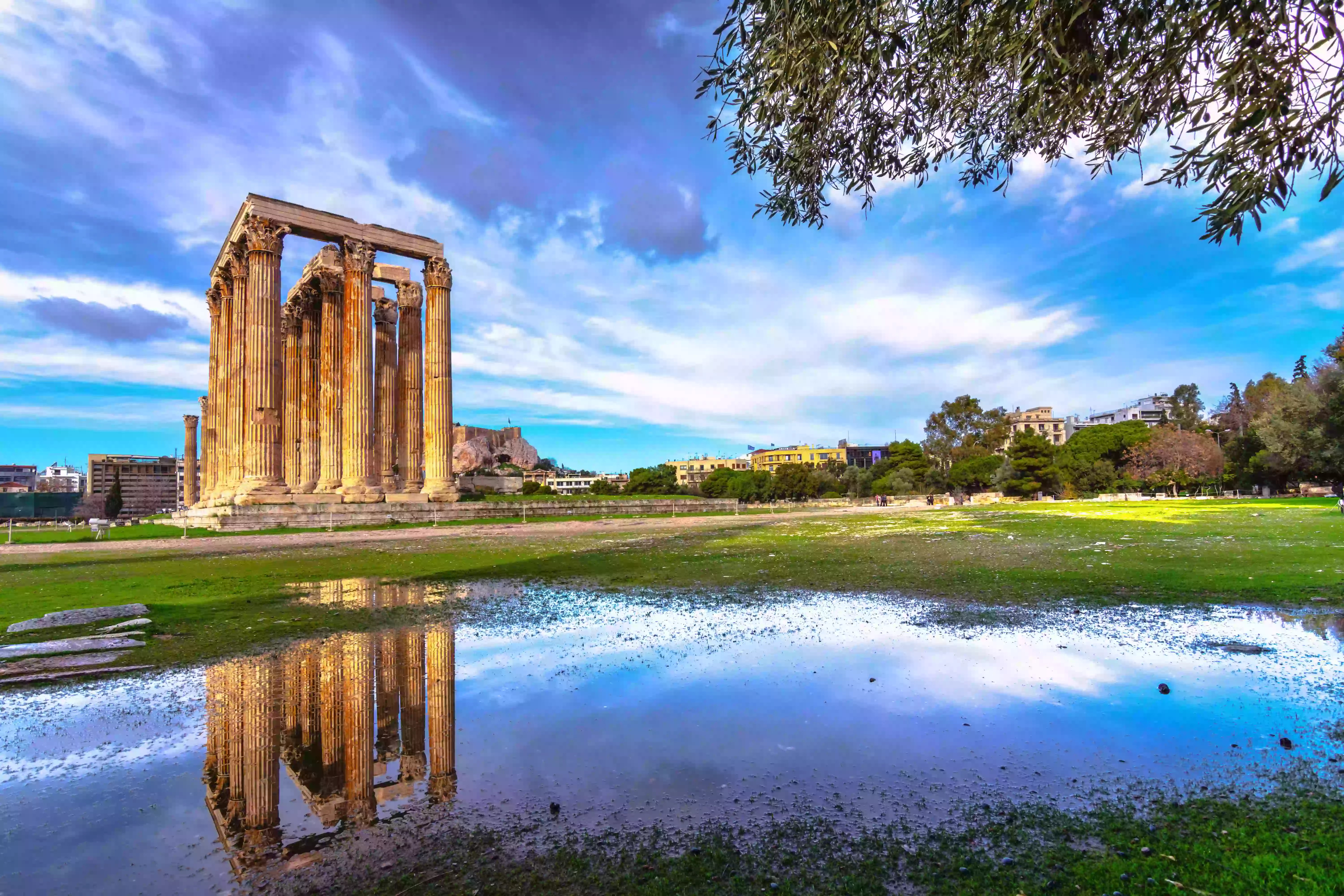Unveiling the secrets of Greece: Essential things you must know before traveling
Morgan Wiggins
Apr13,2023 • 4 min read

G
reece is a country steeped in history and culture, famous for its ancient landmarks, vibrant cuisine, and stunning natural beauty. From the bustling streets of Athens to the pristine beaches of Santorini, Greece offers something for every type of traveler. If you're planning a trip to this incredible destination, there are a few essential things you need to know before you go.
Best time to visit Greece
The best time to visit Greece depends on what you want to see and do. The peak tourist season is from mid-June to August when the weather is hot and sunny, and the beaches are crowded. If you want to avoid the crowds, consider visiting in the shoulder seasons of May or September when the weather is still warm but the crowds are thinner. If you're planning to visit the Greek Islands, keep in mind that the ferry schedules may be more limited in the off-season.
Currency and money exchange in Greece
The currency in Greece is the euro, and most major credit cards are widely accepted. It's a good idea to carry cash with you for smaller purchases and to tip restaurant staff and taxi drivers. ATMs are available in most towns and cities, but be aware that some may charge a fee for withdrawals.
Greek cuisine and traditional dishes to try
Greek cuisine is known for its fresh ingredients, flavorful herbs, and simple yet delicious dishes. Some of the must-try traditional dishes include moussaka (a baked eggplant and meat casserole), souvlaki (grilled meat on a skewer), and spanakopita (a savory spinach and feta pastry). Make sure to also try some of the local cheeses, such as feta and halloumi, and sample the Greek wine and ouzo.
Greek etiquette and cultural norms
Greek culture is known for its warmth and hospitality, but there are a few cultural norms to be aware of. It's considered impolite to point with your finger, so use an open palm instead. Tipping is expected in restaurants and cafes, typically around 10% of the total bill. Greeks also take their time when dining, so don't be surprised if your meal takes a few hours. Finally, make sure to dress modestly when visiting churches or other religious sites.
Greece's history and ancient landmarks to visit
Greece is home to some of the world's most famous ancient landmarks, including the Acropolis in Athens, the Parthenon, and the Temple of Olympian Zeus. If you're interested in Greek mythology, make sure to visit the Palace of Knossos in Crete, the birthplace of the legendary Minotaur. Other must-see sites include the ancient city of Delphi, the monasteries of Meteora, and the island of Santorini, known for its stunning sunsets and picturesque villages.
Greek Islands to visit and how to get there
One of the main reasons people visit Greece is to explore its beautiful islands. There are over 6,000 islands in Greece, with about 227 of them being inhabited. Some of the most popular Greek islands include Santorini, Mykonos, Crete, Rhodes, Corfu, Zakynthos, and Naxos. The best way to get to the Greek islands is by ferry or plane. Ferries are the most popular means of transportation for tourists, and several ferry companies operate in Greece. You can also fly to some of the larger islands, but flights tend to be more expensive.
Public transportation in Greece
Public transportation in Greece is relatively cheap and easy to use. The main means of transportation include buses, taxis, and trains. Buses are the most common and cheapest form of public transportation, and they connect all the major cities and towns in Greece. Taxis are more expensive, but they are a good option if you want to travel to a remote area or if you are in a hurry. Trains are limited, and they only connect a few cities in Greece.
Greek nightlife and entertainment
Greece is famous for its vibrant nightlife, and there are several places to go if you want to experience it. Some of the most popular destinations for nightlife include Athens, Mykonos, and Thessaloniki. Athens is known for its lively bars and clubs, while Mykonos is famous for its beach parties and music festivals. Thessaloniki is the second-largest city in Greece and is a great place to enjoy live music, dance shows, and theater performances.
Greek beaches and water activities
Greece is blessed with some of the most beautiful beaches in the world, and there are several water activities that you can enjoy while there. Some of the most popular beaches include Navagio Beach, Myrtos Beach, Elafonisi Beach, and Balos Beach. You can also go scuba diving, snorkeling, kayaking, or take a boat tour to explore the crystal-clear waters of the Aegean and Ionian Seas.
Health and safety tips for travelers to Greece
Greece is a safe country for tourists, but it is always good to take precautions. Tap water in Greece is safe to drink, but it is recommended to stick to bottled water. Make sure to wear sunscreen when you go outside, especially if you plan to spend a lot of time on the beach. It is also important to be aware of pickpockets in crowded areas, especially in Athens.
Conclusion
Greece is a beautiful country with a rich history and culture that is worth exploring. From the stunning Greek islands to the vibrant nightlife and beautiful beaches, there is something for everyone in Greece. However, it is important to be aware of the local customs and take precautions to ensure a safe and enjoyable trip. With these essential tips in mind, you can now pack your bags and set off to explore the secrets of Greece.